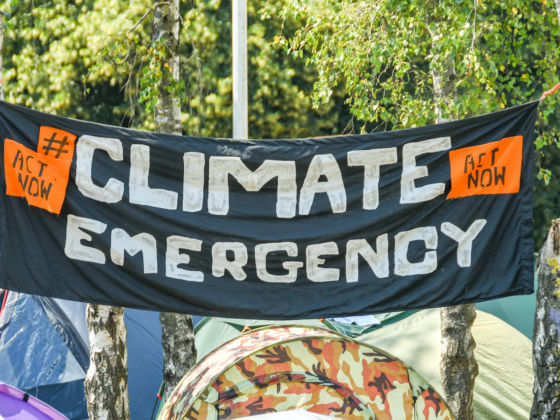IT HAS TAKEN A LOT LONGER than it should have, but the world is finally paying attention to climate change. Last year saw the passage of the world’s first-ever legally binding global climate agreement in Paris, and now countries are starting to take some serious steps towards curbing their climate emissions. A few months ago, it was even reported that 21 countries are currently lowering their carbon emissions while also growing their GDPs.


The US, Mexico, and Canada Just Made a Huge Commitment Towards Fighting Climate Change
This week, the US, Canada, and Mexico took another huge step. During this week’s North American Leaders Summit, the three countries vowed to get half of their energy from clean resources by 2025. This benchmark would be impossible for all three countries to reach separately, but they can reach them together. Currently, Canada has already passed the benchmark, so they will be balancing out the US and Mexico’s deficits. 59 percent of Canadian emissions come from hydropower, and 16 percent come from nuclear power.
Right now, about 20 percent of US power comes from nuclear power plants (which are considered clean), while another 13 come from hydroelectric and other renewable energy resources. In Mexico, only 22 percent of the power comes from sources other than fossil fuels. Together, the three countries get 37 percent of their energy from clean energy sources.
Collaboration between countries
It’s like the countries have paired up as workout buddies. White House officials want to try and get the US to 50 percent by 2025, but think it might be a stretch. Buoyed by Canada’s stellar record, though, the continent may be able to reach the goal. Cooperation between the US and Canada has increased with the election of the progressive Prime Minister Trudeau. If elected, Hillary Clinton has promised to shoot for 50 percent by 2030. Donald Trump, on the other hand, says he will cancel the Paris climate agreement if elected.
But as long as Trump isn’t elected, experts think the new agreement is aggressive, but achievable. And of course, the deal is important, but it won’t be enough to save us from climate change. The rest of the world needs to lower emissions, and technologies like carbon capture and energy efficiency will need to intensify. And many climate advocates don’t view nuclear energy as “clean,” pointing to incidents at Chernobyl and Fukushima.
But the new deal makes it easier for the three North American countries to cooperate. After decades of bickering over the science, it appears the world is starting to cooperate.